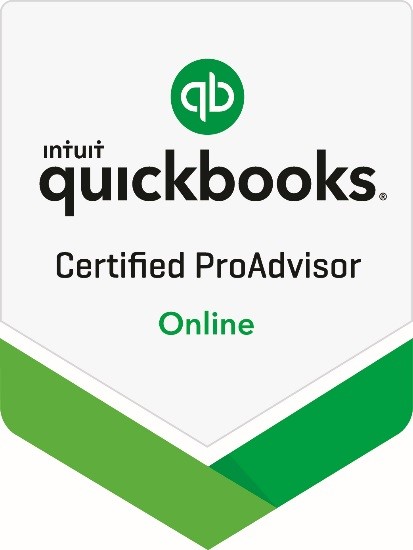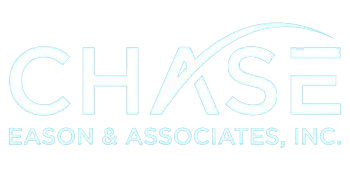Contact Us
Get in Touch
Have questions or need assistance? Contact us today to discuss your financial goals.
Subscribe to our newsletter to receive news, updates, and valuable tips.
Frequently Asked Questions
Getting a Loan: Frequently Asked Questions
Table of Contents
•Should I prepay my mortgage?
•When should I refinance my home?
•Should I borrow against my securities?
•What is a home equity line of credit?
•What are the costs of obtaining a home equity line of credit?
•What is an interest rate "lock-in"?
•What disclosures must a lender give you?
•What is a reverse mortgage?
•What loan interest is tax-deductible?
•What are the limitations on deductibility of loan interest?
•Is interest expense incurred for business purposes deductible?
•Is investment related interest expense deductible?
•Is interest on educational loans tax deductible?
•When can you stop paying private mortgage insurance?
Should I prepay my mortgage?
As a general rule, if you are able to prepay your mortgage (and if there is no penalty for doing so) you should prepay as much as you can every month. There are, however, two exceptions to the general rule:
You do not have an emergency fund of three to six months' worth of expenses stashed away. Any extra money you have should be put towards the emergency fund. Once you've achieved this essential financial goal, then you can begin paying down your mortgage.
You have a large amount of credit card debt. In such case, all of your extra funds should be used to pay down those debts.
In addition, there are a few individuals for whom paying down a mortgage earlier might not be as beneficial financially, particularly if they achieve a better return by investing that money elsewhere. Whether an investor fits into this category depends on his or her marginal tax rate, mortgage interest rate, the return they can get on an investment, and any long-term investment goals they might have.
When should I refinance my home?
Refinancing becomes worth your while if the current interest rate on your mortgage is at least 2 percentage points higher than the prevailing market rate. Talk to some lenders to determine what rates are available and the costs associated with refinancing. These costs include appraisals, attorney's fees, and points.
Once you know what the costs will be, figure out what your new payment would be if you refinanced. You can then estimate how long it will take to recover the costs of refinancing by dividing your closing costs by the difference between your new and old payments (your monthly savings).
Be aware that the amount you ultimately save depends on many factors, including your total refinancing costs, whether you sell your home in the near future, and the effects of refinancing on your taxes.
Should I borrow against my securities?
Borrowing against your securities can be a low-cost way to borrow money. No deduction is allowed for the interest unless the loan is used for investment or business purposes.
Tip: If your margin debt exceeds 50 percent of the value of your securities, you will be subject to a margin call, which means that you will have to come up with cash or sell securities. If the market is falling at the time, a margin call can cause a financial disaster. Therefore, we recommend against the use of margin debt, unless the amount is kept way below 50 percent. Twenty-five percent is a much safer percentage.
What is a home equity line of credit?
A home equity line of credit is a form of revolving credit in which your home serves as collateral. Because a home is likely to be a consumer's largest asset, many homeowners use their credit lines only for major items such as education, home improvements, or medical bills and not for day-to-day expenses.
With a home equity line, you will be approved for a specific amount of credit, in other words, the maximum amount you can borrow at any one time while you have the plan.
Many lenders set the credit limit on a home equity line by taking a percentage (say, 75 percent) of the appraised value of the home and subtracting the balance owed on the existing mortgage. For example:
Appraisal of home $100,000
Percentage x 75%
Percentage of appraised value $75,000
Less mortgage debt -40,000
Potential credit line $35,000
In determining your actual credit line, the lender will also consider your ability to repay by looking at your income, debts, and other financial obligations, as well as your credit history.
Once you're approved for a home equity loan, you will usually be able to borrow up to your credit limit whenever you want. Typically, you draw on your line of credit by using special checks, but under some plans, borrowers can use a credit card or other means to borrow money and make purchases. There may be limitations on how you use the line, however. Some plans may require you to borrow a minimum amount each time you draw on the line--for example, $300--and to keep a minimum amount outstanding.
What are the costs of obtaining a home equity line of credit?
Many of the costs in setting up a home equity line of credit are similar to those you pay when you buy a home. For example these fees may be charged:
• A fee for a property appraisal, which estimates the value of your home
• An application fee, which may not be refundable if you are turned down for credit
• Up-front charges, such as one or more points (one point equals one percent of the credit limit)
• Other closing costs, which include fees for attorneys, title search, mortgage preparation and filing, property and title insurance, as well as taxes
• Yearly membership or maintenance fees
You also may be charged a transaction fee every time you draw on the credit line.
What is an interest rate "lock-in"?
If you decide to apply for financing with a particular lender, and if you do not want to let the interest rate "float" until closing, then get a written statement guaranteeing the interest rate and the number of discount points that you will pay at closing. This binding commitment or "lock-in" ensures that the lender will not raise these costs even if rates increase before you settle on the new loan. You also may consider requesting an agreement where the interest rate can decrease (but not increase) before closing. If you cannot get the lender to put this information in writing, you may want to choose one that will.
Most lenders place a limit on the length of time (say, 60 days) that they will guarantee the interest rate. You must sign the loan during that time or lose the benefit of that particular rate. Because many people are refinancing their mortgages, there may be a delay in processing the papers. Therefore, it may be wise to contact your loan officer periodically to check on the progress of your loan approval and to see if information is needed.
What disclosures must a lender give you?
For a financing loan, the lender must give you a written statement of the costs and terms of the financing before you become legally obligated for the loan. This is required by the Truth in Lending Act and you usually receive the information around the time of settlement--although some lenders provide it earlier.
Tip: Review this statement carefully before you sign the loan. The disclosure tells you what the APR, finance charge, amount financed, payment schedule, and other important credit terms are.
If you refinance with a different lender, or if you borrow beyond your unpaid balance with your current lender, you also must be given the right to rescind the loan. In these loans, you have the right to rescind or cancel the transaction within three business days following settlement, receipt of your Truth in Lending disclosures, or receipt of your cancellation notice, whichever occurs last.
What is a reverse mortgage?
A reverse mortgage is a type of home equity loan that allows you to convert some of the equity in your home into cash while you continue to own the home. Reverse mortgages operate like traditional mortgages, only in reverse. Rather than paying your lender each month, the lender pays you. Reverse mortgages differ from home equity loans in that most reverse mortgages do not require any repayment of principal, interest, or servicing fees as long as you live in the home.
The reverse mortgage's benefit is that it allows homeowners who are age 62 and over to keep living in their homes and to use their equity for whatever purpose they choose. A reverse mortgage might be used to cover the cost of home health care, or to pay off an existing mortgage to stop a foreclosure, or to support children or grandchildren.
When the homeowner dies or moves out, the loan is paid off by a sale of the property. Any leftover equity belongs to the homeowner or the heirs.
What loan interest is tax-deductible?
The deductibility of interest has been limited in recent years. The following types of interest are at least partially deductible:
• Mortgage interest
• Business interest
• Investment interest
• Education related interest
What are the limitations on deductibility of mortgage interest?
Generally, interest expense on the taxpayer's primary residence and second (but not a third) home, is deductible. Interest is only deductible on the first $1,000,000 of the acquisition loan ($500,000 if married filing jointly). As the loan is paid off the limit is reduced. In other words, you cannot refinance a loan for a higher amount than the current principal balance and increase the deduction. In addition interest on a home equity loan of up to $100,000 can be deducted.
Is interest expense incurred for business purposes deductible?
Yes. Interest expense incurred for a trade or business is deductible against the income of that business. For example, if you are self-employed the business interest would be deducted on Schedule C.
Is investment related interest expense deductible?
Yes. Investment interest is deductible up to the amount of investment income.
When can you stop paying private mortgage insurance?
Generally, if you make a down payment of less than 20 percent when buying a home, the lender will require you to buy private mortgage insurance (PMI). You can generally drop the PMI when you have attained 20 percent equity in the home, or when the value of your home goes up (due to a good real estate market) so that your equity constitutes 20 percent.
Under the Homeowner's Protection Act (HPA) of 1998 you have the right to request cancellation of PMI when you pay down your mortgage to the point that it equals 80 percent of the original purchase price or appraised value of your home at the time the loan was obtained, whichever is less. You also need a good payment history, meaning that you have not been 30 days late with your mortgage payment within a year of your request, or 60 days late within two years. Your lender may require evidence that the value of the property has not declined below its original value and that the property does not have a second mortgage, such as a home equity loan.
Under HPA, mortgage lenders or servicers must automatically cancel PMI coverage on most loans, once you pay down your mortgage to 78 percent of the value if you are current on your loan. If the loan is delinquent on the date of automatic termination, the lender must terminate the coverage as soon thereafter as the loan becomes current. Lenders must terminate the coverage within 30 days of cancellation or the automatic termination date, and are not permitted to require PMI premiums after this date. Any unearned premiums must be returned to you within 45 days of the cancellation or termination date.
For high-risk loans, mortgage lenders or servicers are required to automatically cancel PMI coverage once the mortgage is paid down to 77 percent of the original value of the property, provided you are current on your loan.
If PMI has not been canceled or otherwise terminated, coverage must be removed when the loan reaches the midpoint of the amortization period. On a 30-year loan with 360 monthly payments, for example, the chronological midpoint would occur after 180 payments. This provision also requires that the borrower must be current on the payments required by the terms of the mortgage. Final termination must occur within 30 days of this date.
HPA applies to residential mortgage transactions obtained on or after July 29, 1999, but it also has requirements for loans obtained before that date.
Loan Questions: Frequently Asked Questions
Table of Contents
• What should I do if a friend or family member asks me to cosign a loan?
• How can I get the best deal on a home equity loan or an equity line of credit?
• What are the costs of obtaining a home equity line of credit?
• Should I obtain a home equity line of credit or a traditional second mortgage loan?
• How should I determine which of several loan alternatives is best?
What should I do if a friend or family member asks me to co-sign a loan?
Many people agree to co-sign loans for friends or relatives, as a favor, as a vote of confidence, or because they just can't say no. Unfortunately, their act of kindness often backfires because according to many finance companies most cosigners end up paying off the loans they've cosigned--along with late charges, legal fees and all. Not only is this an unwanted out-of-pocket expense, but it can also affect the cosigner's credit record.
While a lender will generally seek repayment from the debtor first, it can go after the cosigner at any time. When you agree to cosign a loan for a friend or family member, you are also responsible for its repayment along with the borrower.
Guaranteeing a loan is a better option than to cosign one in that where a loan is guaranteed, the lender can usually go after the guarantor only after the principal debtor has actually defaulted.
However, if you've decided you're willing to cosign a loan, at the very least you should seek the lender's agreement to refrain collecting from you until the borrower actually defaults, and try to limit your liability to the unpaid principal at the time of default. You should also plan on staying apprised of the borrower's financial situation to prevent him or her from defaulting on the loan. An example of this might be having the lender notify you whenever a payment is late.
Cosigning an Account. You may be asked to cosign an account to allow someone else to obtain a loan. With cosigning, your payment history and assets are used to qualify the cosigner for the loan.
Cosigning a loan, whether for a family member, friend, or employee, is not recommended. Many have found out the hard way that cosigning a loan only leads to trouble.
It bears repeating that cosigning a loan is no different than taking out the loan yourself. When you cosign, you are signing a contract that makes you legally and financially responsible for the entire debt. If the other cosigner does not pay, or makes late payments, it will probably show up on your credit record. If the person for whom you cosigned does not pay the loan, the collection company will be entitled to try to collect from you.
If the cosigned loan is reported on your credit report, another lender will view the cosigned account as if it were your own debt. Further, if the information is correct, it will remain on your credit report for up to seven years.
If someone asks you to cosign a loan, suggest other alternatives such as a secured credit card by which they can build a credit history. If you are asked to cosign for someone whose income is not high enough to qualify for a loan, you are actually doing them a favor by refusing because they will be less likely to be overwhelmed by too much debt. If you're still considering cosigning a loan, then you might want to consult an attorney before taking any action to find out what your liability is, if in fact the other person does default.
If you have already cosigned for someone, and he or she is not making payments on time, consider making the payments yourself and asking the cosigner to pay you directly, in order to protect your credit rating.
How can I get the best deal on a home equity loan or an equity line of credit?
If you decide to apply for a home equity loan, look for the plan that best meets your particular needs. Look carefully at the credit agreement and examine the terms and conditions of various plans, including the annual percentage rate (APR) and the costs you'll pay to establish the plan.
The disclosed APR will not reflect the closing costs and other fees and charges, so compare these costs, as well as the APRs, among lenders.
Interest Rates. Home equity plans typically involve variable interest rates rather than fixed rates. A variable rate must be based on a publicly available index (such as the prime rate published in some major daily newspapers or a U.S. Treasury bill rate). The interest rate will change, mirroring fluctuations in the index.
To figure the interest rate that you will pay, most lenders add a margin, such as 2 percentage points, to the index value.
Because the cost of borrowing is tied directly to the index rate, find out what index and margin each lender uses, how often the index changes, and how high it has risen in the past.
Sometimes lenders advertise a temporarily discounted rate for home equity loans-a rate that is unusually low and often lasts only for an introductory period, such as six months.
Variable rate plans secured by a dwelling must have a ceiling (or cap) on how high your interest rate can climb over the life of the plan. Some variable-rate plans limit how much your payment may increase, and also how low your interest rate may fall.
Some lenders permit you to convert a variable rate to a fixed interest rate during the life of the plan, or to convert all or a portion of your line to a fixed-term installment loan.
Agreements generally permit the lender to freeze or reduce your credit line under certain circumstances, such as during any period the interest rate reaches the cap.
What are the costs of obtaining a home equity line of credit?
Many of the costs in setting up a home equity line of credit are similar to those you pay when you buy a home.
For example, these fees may be charged:
• A fee for a property appraisal, which estimates the value of your home
• An application fee, which may not be refundable if you are turned down for credit
• Up-front charges, such as one or more points (one point equals one percent of the credit limit)
• Other closing costs, which include fees for attorneys, title search, mortgage preparation and filing, property and title insurance, as well as taxes
• Yearly membership or maintenance fees
You also may be charged a transaction fee every time you draw on the credit line.
You could find yourself paying hundreds of dollars to establish the plan. If you were to draw only a small amount against your credit line, those charges and closing costs would substantially increase the cost of the funds borrowed.
On the other hand, the lender's risk is lower than for other forms of credit because your home serves as collateral. Thus, annual percentage rates for home equity lines are generally lower than rates for other types of credit.
The interest you save could offset the initial costs of obtaining the line. In addition, some lenders may waive a portion or all of the closing costs.
Should I obtain a home equity line of credit or a traditional second mortgage loan?
If you are thinking about a home equity line of credit you might also want to consider a traditional second mortgage loan. This type of loan provides you with a fixed amount of money repayable over a fixed period. Usually the payment schedule calls for equal payments that will pay off the entire loan within that time.
Consider a traditional second mortgage loan instead of a home equity line if, for example, you need a set amount for a specific purpose, such as an addition to your home.
In deciding which type of loan best suits your needs, consider the costs under the two alternatives. Look at the APR and other charges.
Do not simply compare the APR for a traditional mortgage loan with the APR for a home equity line because the APRs are figured differently. The APR for a traditional mortgage takes into account the interest rate charged plus points and other finance charges. The APR for a home equity line is based on the periodic interest rate alone. It does not include points or other charges.
How should I determine which of several loan alternatives is best?
Use the legally-required disclosures of loan terms to compare the costs of home equity loans.
The Truth in Lending Act requires lenders to disclose the important terms and costs of their home equity plans, including the APR, miscellaneous charges, the payment terms, and information about any variable-rate feature. In general, neither the lender nor anyone else may charge a fee until after you have this information.
You usually get these disclosures when you receive an application form, and you will get additional disclosures before the plan is opened. If any term has changed before the plan is opened (other than a variable-rate feature), the lender must return all fees if you decide not enter into the plan because of the changed term.
Credit costs vary. By remembering two terms, you can compare credit prices from different sources. Under Truth in Lending, the creditor must tell you-in writing and before you sign any agreement-the finance charge and the annual percentage rate.
The finance charge is the total dollar amount you pay to use credit. It includes interest costs, and other costs, such as service charges and some credit-related insurance premiums.
For example, borrowing $100 for a year might cost you $10 in interest. If there were also a service charge of $1, the finance charge would be $11.
The annual percentage rate (APR) is the percentage cost (or relative cost) of credit on a yearly basis. This is your key to comparing costs, regardless of the amount of credit or how long you have to repay it:
You borrow $100 for one year and pay a finance charge of $10. If you can keep the entire $100 for the whole year and then pay back $110 at the end of the year, you are paying an APR of 10 percent. But, if you repay the $100 and finance charge (a total of $110) in twelve equal monthly installments, you don't really get to use $100 for the whole year. In fact, you get to use less and less of that $100 each month. In this case, the $10 charge for credit amounts to an APR of 18 percent.
All creditors-banks, stores, car dealers, credit card companies, finance companies- must state the cost of their credit in terms of the finance charge and the APR. Federal law does not set interest rates or other credit charges. But it does require their disclosure--before you sign a credit contract or use a credit card--so you can compare costs.
Schedule your call today at
(866) 721-5356



Ready to Keep More of What You Earn?
Start With a Free Tax Savings Assessment
Discover how much you could be saving with proper tax strategy. Our complimentary assessment typically uncovers $15,000-$50,000 in missed deductions and savings opportunities.

Subscribe to our Mailing List
And that's just a peek at what we offer. Get more marketing tips straight to your inbox.
Contact Us
(866) 721-5356
100 South Bedford Road, Suite 340, Mt. Kisco, New York 10549
© 2024 Chase Eason & Associates, Inc.
100 South Bedford Road, Suite 340, Mt. Kisco, New York 10549






















